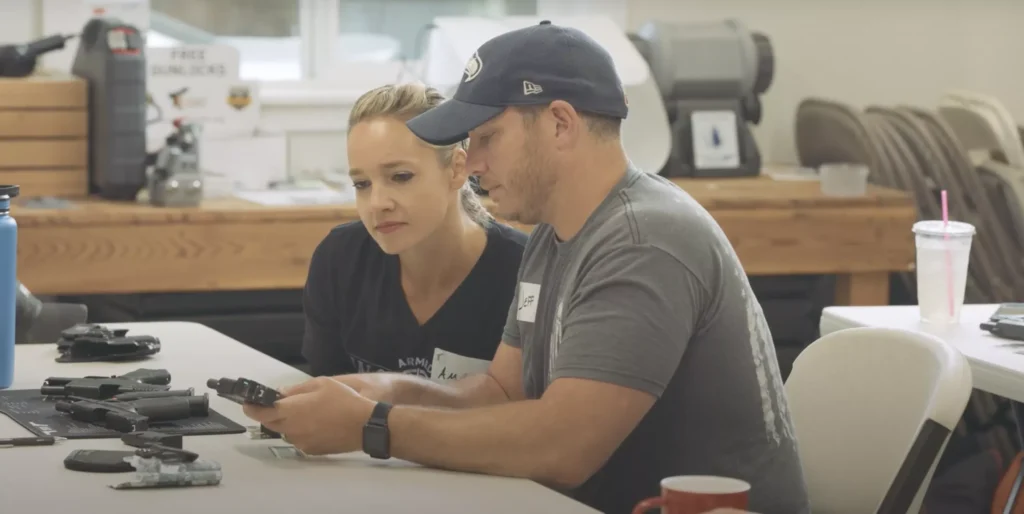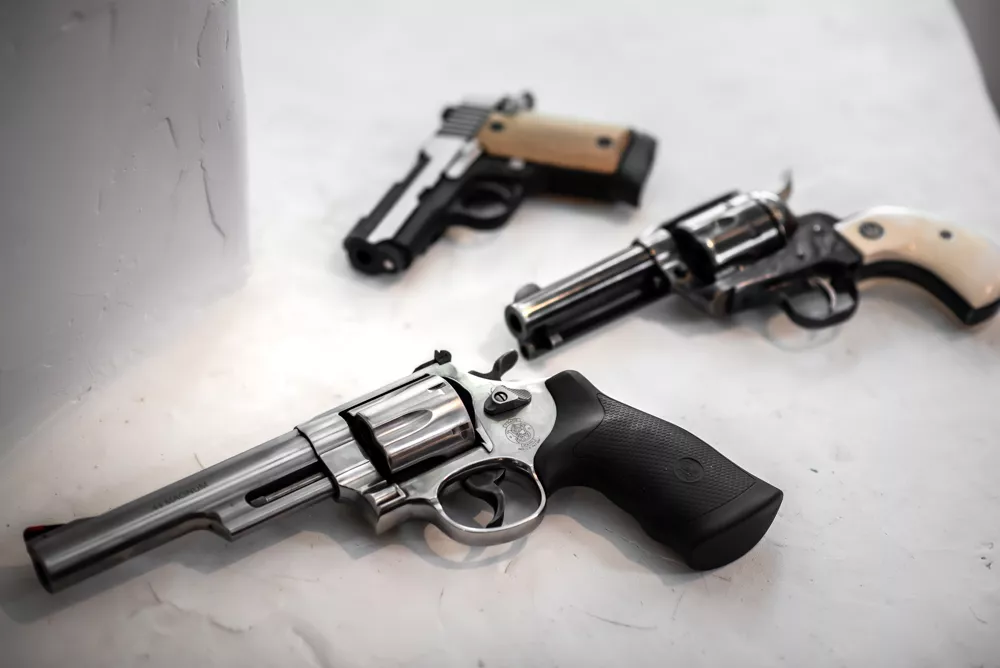
One day it happens. You walk into the house and there it is—a new firearm tucked carefully away or proudly shown off after a trip to the gun store. Maybe your spouse, boyfriend, or family member made the decision. Maybe they’ve always had a gun, and now you’re just realizing how real it is. Either way, your household dynamic just changed—and it’s normal to feel a mix of emotions about it.
Excitement. Curiosity. Maybe a little hesitation.
Whatever you feel is valid—but stepping up to the responsibility is non-negotiable.
Because once a firearm is part of your home, it’s no longer about who bought it. It’s about making sure everyone under that roof—yourself included—is confident, educated, and prepared.
The short answer: Everyone’s.
The long answer: Once a firearm enters your home, it’s no longer "his thing" or "his responsibility." Whether you ever intended to own a firearm yourself or not, you now have a duty to understand it.
Knowing how the gun operates, how it’s stored, and what the safety plan is—these aren’t "nice-to-haves." They are essentials. Because relying on someone else to "handle it" is not true security. Real safety comes from understanding, not outsourcing.
And if you have kids at home? Their education starts with you—whether you initiated it or not.
You don’t need to know everything overnight. If he’s experienced with firearms, use that resource. Ask him to show you the basics, or better yet—sign up for a professional class together. Accompany him to the range. Watch, ask questions, and participate. There’s no shame in starting small. The only shame would be ignoring an opportunity to learn a life-saving skill simply because you were worried about looking inexperienced. Every expert was a beginner once—and the more time you spend training, the less fear and uncertainty you’ll carry around with you. Confidence is earned, and it starts by showing up.
It’s also completely normal if you’re feeling a little resentment about guns suddenly being part of your home—especially if it wasn’t a conversation, but something that was simply there when you arrived. But here’s some truth: resentment often masks fear. Fear of the unknown. Fear of what you don’t yet feel equipped to handle. And sometimes, responsibility calls before we feel fully ready. You don’t have to like how it showed up—but you do get to choose how you respond. Stepping up to learn how to manage a powerful tool like a firearm isn’t just about feeling safer—it’s about reclaiming your personal power. Own it.

Kids don’t care whose gun it is. They care what it means—and you need to be the one to tell them.
Here’s how smart families handle it:
Giving children clarity around firearms is one of the most powerful safety tools you have.
If having a gun in the house makes you a little uneasy—you’re not alone. It’s natural to feel cautious about something so powerful. That’s not weakness—that’s wisdom.
But caution should lead to education, not fear.
Learning how to safely handle, store, and—yes—use the firearm if needed will replace anxiety with calm capability.
Here’s where to start:
The more you know, the more peace you’ll have knowing you’re capable—not just hoping everything will be okay

When a firearm enters your home, it’s an opportunity—not just a challenge.
An opportunity to step into a greater level of awareness.
An opportunity to take ownership of your environment.
An opportunity to ensure you and your loved ones are truly protected.
And you don't have to do it alone. If you’re ready to grow your knowledge, confidence, and skills, WGOAA is here for you.
This is the life of a modern, armed woman—alert, capable, and unapologetically prepared.